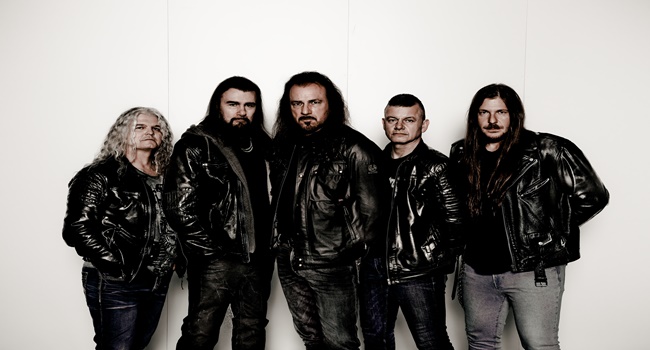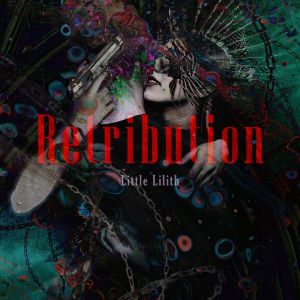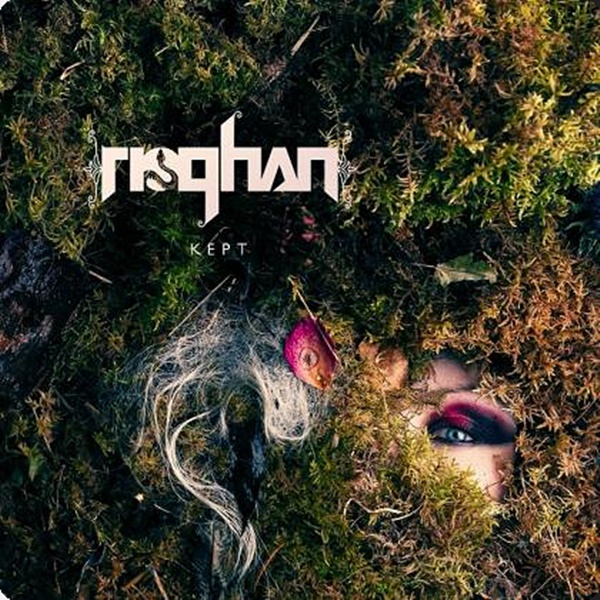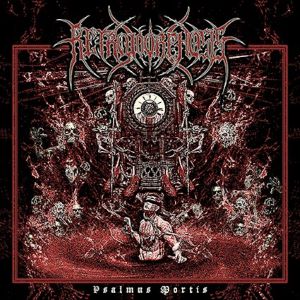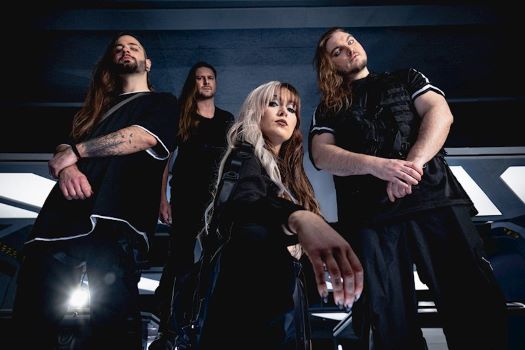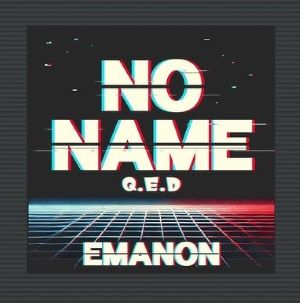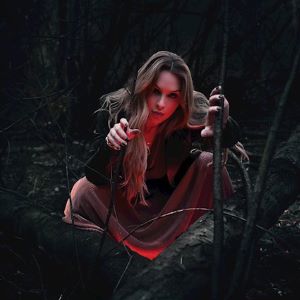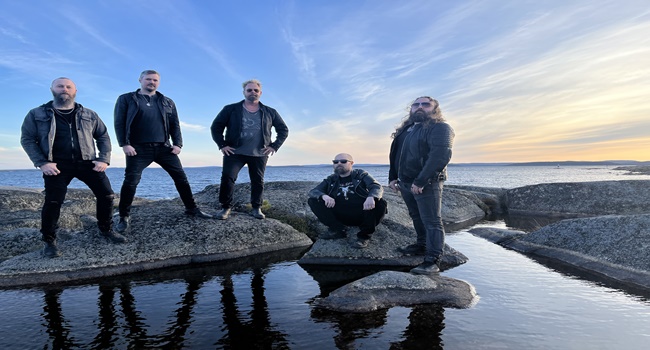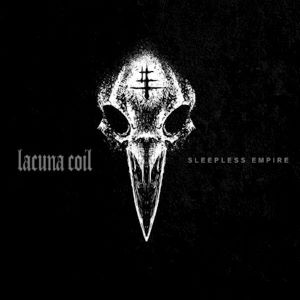The delivery of consistent, high-quality heavy metal from a power / thrash-like angle for over thirty-five years is not a usual occurrence. Especially when coming from one act amidst all the struggle, turmoil, and strife that life and its experiences can throw at us as humans. That’s the period though we arrive at here from German veterans Brainstorm. Their latest album Plague of Rats as a fourteenth studio record contains the hefty riffs and melodic hooks one expects from this style – along with some Eastern/Indian chord progressions and nuances plus more exploration on Indian religions and mythology in some of the lyrical themes. We reached out to guitarist Torsten Ihlenfeld who has been very enthusiastic to discuss everything from the latest bass player acquisition, why the band delved deeper again into those exotic themes, guest appearances from two members of Leaves Eyes, special memories as a touring musician, where the band would like to play that they haven’t, and what’s in store for the band to support the record and beyond.
Dead Rhetoric: You have a new bass player in Jim Ramses. What do you enjoy most about his playing, his outlook, and what he brings to Brainstorm at this point in the band’s career?
Torsten Ihlenfeld: Mainly he’s a very talented bass player, and a very nice guy which means he fits great in the band. It was like nothing spectacular with the change because Antonio and Andreas both had to step back because of work and families. There were no scandals or anything like that. Although Jim is originally from Athens in Greece, he is the bassist that lives the closest to our home headquarters than all the other guys before him. He moved from Greece to Germany, and he lives in our hometown now for two years. It was an easy step to ask Jim, we rehearsed together and it’s a great match. We are looking forward to going on tour with him.
Dead Rhetoric: The latest album Plague of Rats from Brainstorm explores more of the Indian themes you developed for the band on the Soul Temptation album of 2003. Why did now seem the right time to work on more themes in this regard – were there specific inspirational moments or influences that came about?
Ihlenfeld: Yeah, that Eastern/ Indian harmonies and themes, it’s always part of the Brainstorm DNA. Even back in the demo times, we had songs and riffs like this. We started to focus on this first on the Ambiguity album in 2000, with “Maharaja Palace”. For almost everybody, the Soul Temptation album with the trilogy of songs was like, ‘what is Brainstorm coming up with, this Indian / Eastern stuff?’. The title track, it was part of the trilogy, it had to be the focus. That’s when people recognized that maybe Brainstorm is doing something that’s a little bit different from the other bands. Even on the Liquid Monster album and follow-up albums, there are some small hints of harmonies, fills, that play within that kind of music.
We don’t want to have to do at least one song in that kind of style on an album. It has to be the right time; we have to feel it. For Plague of Rats, the album cover was done in the very early stages of the songwriting process. For me, looking at the cover, it was a kick off to the songwriting. That’s why there is more focus on this album, because (vocalist) Andy (Franck) is mostly responsible for the cover ideas. As he came up with it, it was clear that Brainstorm Eastern DNA would be more in focus again.
Dead Rhetoric: When it comes to the musical side of things, when you do explore that mindset, is it different because as Europeans you are coming from a different perspective injecting different chord progressions and that Eastern/Indian feel into the music?
Ihlenfeld: It’s not difficult because the music language is not bound to borders. At least in my opinion. I love those kinds of harmonies, developing them and playing with those ideas. It’s not hard to get in that mood. Playing, you see things develop step by step. It’s not a bigger effort than to write a classical piece in E minor or something like that.
Dead Rhetoric: Did Andy inject some of his travel experiences into the lyrics – as I know he did visit Egypt last year among other countries?
Ihlenfeld: That’s correct. Andy is so full of ideas and inspiration. He’s reading a lot of books, he’s traveling, the same with myself. We have so many beautiful and interesting places all over the world, people all over the world who we’ve met during the tours and at the festivals. The world is our stage, so to speak, and we love being in contact with different kinds of people from different cultures, all that kind of stuff. We always felt very welcome everywhere we have played. That’s where we are coming from.
Dead Rhetoric: In the background information regarding the recording and songwriting for this record, Andy mentions that you feel like you learned from your mistakes and played to your strengths for this set of material. Where do you see the strengths of the band currently, and what did you learn from in the past that made this record stronger in the end?
Ihlenfeld: You always learn from album to album. What we have learned, especially in the past, is that we love to play many different parts in one song. When you get older a little bit, I think the songs are more to the point without losing some kind of progression in the art. Not diving too deep into longer parts. That’s one part of what Andy meant in learning from the past. We feel very comfortable with that. Especially when you listen to the last three albums, it’s back to more fast songs. There is still an epic song on every album, but they have that freshness. As long as we are able to play things, we do it.
Dead Rhetoric: Is this where you rely on the extra set of ears through producer Seeb Levermann, who is known for his work in Orden Ogan? As he is familiar with your work best…
Ihlenfeld: Absolutely. Seeb is such an incredible talent. He has such a huge musical understanding. For us, he’s definitely the sixth band member who levels up everything as we feel it, but lets the band still have its own identity. That’s the best combination you can have.
Dead Rhetoric: How did the guest duet with Elina Siirala of Leaves Eyes come about for “Your Soul That Lingers In Me”? And you also had Alex from the band perform on another track…
Ihlenfeld: That was a big wish of Andy’s. When we wrote “Your Soul That Lingers In Me”, Andy said he heard a female voice in this song. And then “From Hell”, which is a very fast almost thrash, speed song, he always was like ‘maybe we can include some growls there’. Andy and Alex, they are both from the same area, and have known each other for so long. It was a very easy and clear choice to ask Alex to be a part of that song. With Elina, of course when you know how everything fits together with Atrocity and Leaves Eyes, Andy said he wanted her singing on that song. Not the typical way of singing that she does with Leaves Eyes and those records, it’s a little bit different from that vocal range but we love it so much, it turned out great and she did a really great job. And Alex as well, he’s a great musician.
Dead Rhetoric: You’ve released three singles to date from the record. How does the process work between the band, management, and record label as far as what songs to premiere first from the record? Do you believe this is an accurate representation of what listeners can expect from the full album?
Ihlenfeld: Oh yes, I think so. We are pretty free to choose what we want as a single. Of course, we discuss it with the record label when we have the meetings, and we present our choices for the single tracks. Usually it is almost 90%, the record label follows what we suggest as to being the singles. On the other side it’s great to have an opinion that is not directly involved in the songwriting process. When we present the songs to the record label I have heard them a thousand times already. It’s always good to have a fresh ear, and sometimes you are surprised how people listen to the songs and how they are understanding them. The singles are almost always the choice of the band, and the record label follows.
Dead Rhetoric: The previous album release came out just before a lot of COVID-19 restrictions were lifted the following year for shows. How have you seen the state of the live music over the past few years – do you think people treasure more the live experience from club and theater shows to festival settings that maybe was taken for granted during that two-year period of little to no activity?
Ihlenfeld: Yes. On the one hand, it is as you said – but it was very different directly when in September 2021 we released Wall of Skulls, and we had the tour booked ready with everything. And then everything was shut down – it was unreal, and it felt unreal. We were used to writing songs, record the album, release it, go on tour, play the festivals, and start all over. There was a break for twelve months, and nobody was allowed to do anything, no touring, no live shows, and not being allowed to meet. That was very strange. The following years, when we started to tour thirteen months later with the Rage guys, the pandemic was not really over, but the shows were starting to come back again. It was different for the people – they weren’t sure if the show(s) would take place, or did it have to be cancelled on short notice because of new restrictions and developments. The following two years are so fully packed with concerts, every show that didn’t happen during COVID-19 had to be played. After the tour, we thought about doing a second tour. We couldn’t because the calendar was full, everybody was on tour. Now I think people enjoy going out to see shows again. They don’t have four or five tickets on their pin wall still left to go to, now they can go to new shows. I was at the show at Stuttgart for us, during the weekend, and that’s exactly how it feels. People are enjoying live concerts very much. They don’t take it for granted any more.
Dead Rhetoric: At this point in the band’s career, how difficult is picking out a set list that you as a band and the fans will be satisfied with?
Ihlenfeld: You cannot miss the live classics, and you have to include new songs to present your new album. Better to be in that position then to be in the opposite position, not to know what to play at all. There’s a good chance to maybe alter the set list a little bit, depending on the tours when the big cities are away from each other on the tour. We enjoy this very much, we have a bigger pool of songs that we end up taking on tour. We can often decide on stage for one song or another. That’s a big comfort that we feel – being spontaneous, although you have to decide on one or two main set ups, so you don’t disappoint your fans, and you don’t play not enough new songs.
Dead Rhetoric: Now being a part of the Reigning Phoenix Music roster after your time on Metal Blade and AFM Records, where do you think this record label will take the band in terms of promotion and following this deep in your career?
Ihlenfeld: I hope that Reigning Phoenix can of course level up the band some steps. I think that we made a good decision. We know the people at the label for a long time that are working at Reigning Phoenix. That was a big point for us to decide to go to that label. We feel very at home when you know people – even back at the AFM years or the Metal Blade years. You know them, you know the music that they love, they know the band, they know the songs. That’s a very good position for the band. Although being a kind of new label, it’s a label with a long history from the people that work there. The experience, it’s metal people working at a metal label.
Dead Rhetoric: When it comes to your life as a musician and as a person, what are some of the choices you’ve made that make you the person that you are?
Ihlenfeld: Being a musician and being able to play music and at least make part of your living out of that, that’s such a great gift. It changes your point of view on many things. Not having to go to a nine to five routine with a job that you hate. I can do something that I love. Of course it’s not easy, sometimes. It’s such a great gift to be able to do something that you love. To learn and to get to know people from all over the world, especially when you come there as a band and you play there, we feel welcome everywhere we go. That changes everything. The metal people, not only the fans, but the people that work in the music industry, you are breathing (in) the same DNA. This makes the world so much bigger with friends. Makes you more open-minded I would say.
Dead Rhetoric: What have been some of the best places you’ve travelled to in your life – and what do you believe you learned the most from those experiences that may have surprised you?
Ihlenfeld: There are quite many interesting places. We had a place we visited north of Hungary and north of Romania, we visited the castle of Draco. I would never in my life (have) visited that part of the world without being there. You get to know many interesting places with so much history that you get explanations from people that are living there. You are not going there as a tourist and only knowing the tourist places. There are so many interesting and beautiful places that I never would have experienced without making music. It’s not only one or two or three. When we played Portugal for the first time, the first tour through Spain and we drove in a van to see the country besides the tourist places. It’s an amazing experience every time you go on tour.
Dead Rhetoric: Are there specific places you’d like to play in Brainstorm that you haven’t been able to as of yet?
Ihlenfeld: For sure. Southeast Asia we have never visited. And with our favorite kind of music, Eastern DNA stuff, we would like to go do a run there and meet the people there. It would be so much influence for us to give us new stories. Playing as much as you can with your own music, it makes the world your friends.
Dead Rhetoric: What’s on the horizon for Brainstorm over the next twelve months or so to promote this record? And what’s left to accomplish in your eyes with this group – or your ambitions as a musician?
Ihlenfeld: First off, we will do a release tour run. Which we did not do very often in the past. We will do ten dates right on the day the album comes out. To promote the album on the release date, and for the week after. Usually, you wait until four to eight weeks after the album release to do a tour. This time, we decided on a release show run to prepare everything for the fall after the summer festivals to go on a real big tour to promote the album. We are hopeful for a long run.
For us, there is no end in sight. We love it as much, if not more, than in the beginning. Because you learn as musicians, it’s not being the fastest guitar player in the world. It’s the song that counts, We want to get better as songwriters, and we’ve learned from album to album that we want to keep the band going. No one says no to a level up – when you get more successful, that is always welcome. Getting better as songwriters and satisfying people with the music that you write, and give the people something back from what they give us for the past thirty-five years, that’s the most important thing for the band, meanwhile. Not being one of ten rock stars. We have such a good, long career and such dedicated fans. We take things as they come.


